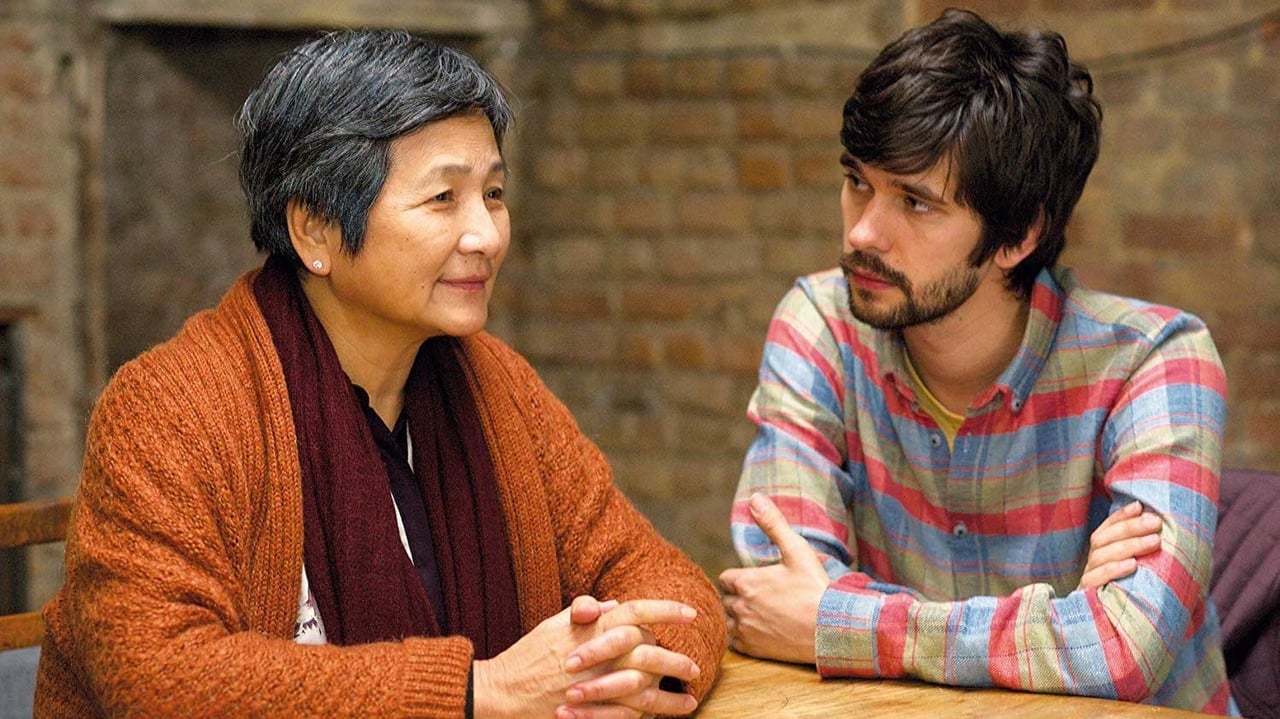

just watch it!
... View MoreIn truth, there is barely enough story here to make a film.
... View MoreGreat example of an old-fashioned, pure-at-heart escapist event movie that doesn't pretend to be anything that it's not and has boat loads of fun being its own ludicrous self.
... View MoreClose shines in drama with strong language, adult themes.
... View MoreThroughout this movie, about the half Chinese man or his partner, we don't know their jobs or other status. Nor do we know much about their characters; when they appear they are mostly either discussing or describing the Chinese mother. Yet about her, we know every detail.The one who refused to learn the language while attracted to the culture; the one who continued to control her son even though he is a total grown-up; the one who contests for her son's affections and attention with whoever comes across; the one who deliberately remained incapable of taking care of herself so that the son cannot leave her alone. So typically a Chinese mother.
... View MoreI have watched this movie several times and every time I tremendously enjoyed it: its theme, its ambiance, its atmosphere, its actors, its camera, its music, its dialogues, its editing, and most of all its directing For me, this is really a marvelous piece of art, so gentle, emotional, responsive, so well-balanced and, hence, so beautiful! This movie is the best example that a gay relationship and all contradictions with respect to it can be represented in a discrete, dignified and distinct way. This is what makes this movie so different from all the others with a similar theme. Simply excellent: 10!
... View MoreJunn (Cheng Pei Pei) is a widowed Cambodian-Chinese woman who lives in an old peoples home in London, placed there by her only son Kai (Andrew Leung). With no other family, and having left Cambodia over 50 years ago, Junn is alone and unwilling to adapt to her surroundings or the people she's placed with.She relies on Kai's attentions and affections, but her isolation becomes utterly complete with his unfortunate death. Junn knew that Kai lived in a house with Richard (Ben Wishaw), but Kai hadn't told her they were together as a couple. Grief-stricken himself, Richard feels duty-bound to help Junn, but they don't even share a common language let alone know much about each other.Alan (Peter Bowles) resides at the home too and starts an unusual relationship with Junn where they talk to each other in their own languages, not really knowing what on earth the other is thinking or talking about apart from physical gestures. Richard tries to help this sweet pairing by hiring a translator in Vann (Naomi Christie), so that they can communicate with each other. Its a way in for Richard to get closer to Junn, who has her own reasons for disliking him.'Lilting' is the debut from writer-director Hong Khaou, who shines a light on contrasting cultures in the capital. Grief is foremost in the minds of all concerned, Wishaw is wonderful as the achingly suppressed Richard, who gradually releases his grief the more he gets to know Junn, showing her just how much he loved Kai. Pei Pei plays the stoic mother perfectly, you can see the isolation, love and grief in her eyes.In light of the subject matter, the overall mood of 'Lilting' is quite forgiving. Junn and Alan provide the most endearing moments as well as some awkwardly comical scenes especially when they confess their bad habits to each other. Dealing with such weighty issues as love, memory, language and mourning, Khaou has directed an assured and thoughtful film full of subtle releases and deeply felt emotions.
... View MoreLilting has gotten such great reviews, from professional critics and from viewers, that I couldn't wait for its release in the US and ordered it from the UK. When it arrived this afternoon I dropped everything I was doing to watch it.I can't remember ever being as disappointed in a movie as I was in this one. It's not because my expectations were too high, because that's happened with other movies and I've adapted to reduced expectations as I watched them. But Lilting is SO bad - in every way except for the cinematography and, occasionally, Ben Whishaw - that the only way I could even get all the way through it to the end was by trying to think of ways it could have been even worse.Lilting's insurmountable problem is its screenplay, which is heavyhanded and depressingly stupid; the greatest director and actors on earth couldn't have made it work.Kai's mother is so hard and cruel and selfish that she needs somebody to slap her. Instead, everybody bows and scrapes and lies and grovels before her, trying to avert her displeasure, as if she's some blind, squat, pitiless, demonic, all-devouring swamp goddess. Their neurotic, masochistic toadying is even more disgusting than her monstrous selfishness is.Whishaw's Richard is sweet and gentle and kind, and to watch as he debases himself trying to please that self-centered old b!tch made me physically sick. And Kai? What did Richard ever see in that jerk? He and his horrible mother are perfect for each other.The story is infuriatingly stupid, every word of dialog is stilted, ponderous and unbelievable, the direction is jerky, all the characters are revolting, with mediocre actors playing them (except Whishaw), and I wish I'd never even heard of this awful movie.I feel like the only fool in the wildly cheering crowd who can see that the emperor is naked. I'm sure the throngs around me who are ecstatic about this movie will vote my review into the abyss of uselessness, but there's nothing I can do about that. I don't understand them any better than they understand me. All I can do is tell the truth as I see it.I adore Ben Whishaw; he's beautiful, enormously intelligent, enormously sexy and enormously talented, and I'd watch him in ANYTHING. He has the most beautiful voice God ever gave to a human being. But I hope he never, ever, EVER gets involved in another movie like this one. It's just about as bad as a movie can be.
... View More